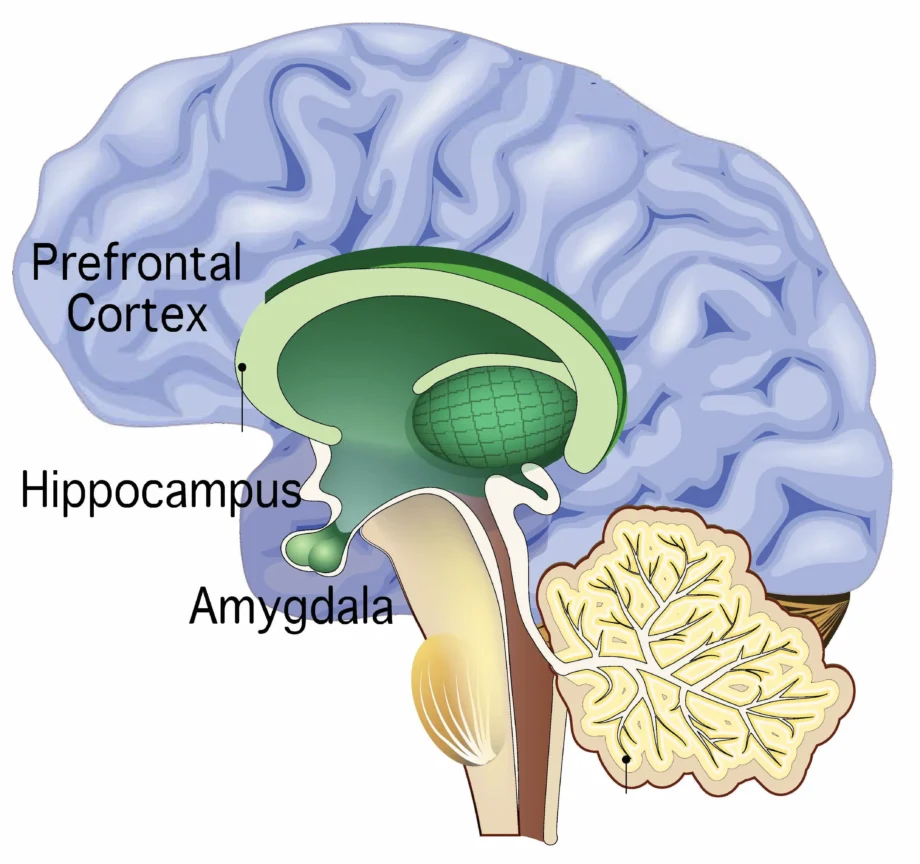Feeling overwhelmed is something we’ve likely all experienced. Whether it’s due to juggling responsibilities or facing unexpected challenges, the pressure can easily build up. Life can get busy, and the pressure to balance work, friends, family, home admin and personal responsibilities can sometimes feel like too much. Fortunately, mindfulness is a powerful way to better manage these feelings, and Personal Development Coaching can help guide you through it.
For many people, the word ‘mindfulness’ might be instantly associated with words like ‘alternative,’ ‘being hippy,’ ‘spiritual,’ ‘staying still,’ ‘boredom,’ and ‘meditation.’ If you have ever tried meditation and not enjoyed it or found it helpful, it can be easy to write mindfulness off as a whole and think it just isn’t for you. But if this is the case, let’s challenge that.
With preconceived ideas, we can miss out on a potential life hack that is actually scientific and has a lot more choice than we might think. Let’s look at what mindfulness actually is, rather than how it’s often portrayed.
What is Mindfulness?
Mindfulness is about focusing on the present moment. Instead of letting your mind run wild with stress and worries about the past or future, mindfulness teaches you to be aware of what’s happening right now. It can have an immediate effect on the body such as heart rate and a lasting impact on stress and overall well-being. It can help you stay calmer and make better decisions, especially when you’re feeling overwhelmed. A Personal Development Coach can help you incorporate mindfulness into your daily routine to manage feelings of overwhelm more effectively.
Mindfulness isn’t only about meditation. It can be anything that allows you to focus your attention on the present moment, your breathing, your body, or your surroundings. Below are some simple exercises anyone can try.
18 Simple Mindfulness Exercises
- Deep Breathing: Focus on slow, deep breaths.
- Body Scan: Notice the sensations in different parts of your body.
- Walking: Pay attention to your footsteps and surroundings.
- Mindful Eating: Focus on the taste, texture, and smell of your food.
- Listening to Sounds: Focus on the sounds around you.
- Stretching: Stretch slowly and notice how your muscles feel.
- 5 Senses Check-in: Focus on what you can see, hear, smell, taste, and touch.
- Coloring or Drawing: Pay attention to the shapes and colors.
- Counting Breaths: Count each breath up to 10, then repeat.
- Guided Meditation: Follow a guided meditation online or with an app.
- Sitting Quietly: Observe your thoughts without judgment.
- Heartbeat Awareness: Focus on the rhythm of your heart.
- Showering: Pay attention to the feel of water on your skin.
- Journaling: Write down your thoughts without overanalyzing them.
- Object Focus: Study a simple object closely for a few minutes.
- Gardening: Focus on the sensory experience of being with plants.
- Crafting: Notice the movement of your hands as you craft.
- Breath Watching: Simply observe your breathing as it happens.
These exercises help ground you in the present moment, which is the essence of mindfulness.
Why Mindfulness Reduces Overwhelm:
Here’s how mindfulness can help reduce overwhelm in scientifically supported ways. It:
1. Calms the Brain’s Stress Response
Mindfulness calms the amygdala, the part of your brain responsible for fear and stress. When this area is less reactive, you can approach stressful situations with a clearer, calmer mindset.
2. Helps You Make Better Decisions
The prefrontal cortex, which handles decision-making, gets stronger with mindfulness practice. This helps you juggle multiple responsibilities.
3. Improves Emotional Control
Mindfulness increases grey matter in your brain, which improves your ability to manage emotions and stress. The more grey matter you have, the better you are at keeping overwhelm in check.
4. Stops Your Mind from Wandering
The part of the brain responsible for daydreaming, called the Default Mode Network, is regulated by mindfulness. This means you can stay more focused and less scattered when you practice mindfulness.
5. Reduces Stress Hormones
Mindfulness lowers levels of cortisol, the stress hormone. When cortisol drops, your body can relax and your mind can focus.
6. Boosts Your Ability to Plan and Organize
Executive function, which helps with planning and focusing, improves with mindfulness. This means you can handle more tasks without feeling like you’re losing control.
7. Gives Your Brain a Rest from Information Overload
In today’s world, we’re constantly bombarded with information. Mindfulness helps filter out unnecessary distractions, giving your brain time to rest and recover.
8. Helps You Notice Early Signs of Stress
Mindfulness improves interoception—your ability to notice what’s happening in your body. This helps you recognize early signs of stress, like tight muscles or a racing heart, so you can take action before things spiral.
9. Makes Switching Between Tasks Easier
When you have to switch between different tasks, it can feel overwhelming. Mindfulness makes this transition smoother by helping your brain adjust more easily.
10. Helps You Separate from Overwhelming Thoughts
Mindfulness teaches you to observe your thoughts rather than being controlled by them. This makes it easier to deal with negative or overwhelming thoughts without getting caught up in them.
11. Makes Emotions Easier to Understand
Sometimes, it’s hard to know why you’re feeling overwhelmed. Mindfulness helps you break down and understand your emotions, so you can address them one by one instead of feeling swamped.
12. Builds Resilience to Stress
Mindfulness strengthens your emotional resilience, meaning you can bounce back from stress more quickly over time.
13. Helps You Keep Multiple Tasks in Mind
Working memory allows you to keep several ideas in your head at once. Mindfulness improves working memory, making it easier to manage multiple responsibilities without getting frazzled.
14. Improves Focus on One Thing at a Time
Multitasking often leads to overwhelm. Mindfulness helps you focus on one task at a time, which reduces mental strain and increases productivity.
15. Stops Negative Thought Patterns
When we constantly replay negative thoughts, it leads to feelings of overwhelm. Mindfulness helps break this cycle by keeping your focus on the present instead of on repetitive, unhelpful thoughts.
16. Activates the Body’s Natural Relaxation Response
Mindfulness triggers the parasympathetic nervous system, which is responsible for calming the body. This helps lower stress and bring you back to a state of calm more quickly.
17. Prevents Mental Burnout
If your brain is always working in overdrive, it leads to mental fatigue. Mindfulness helps give your mind the rest it needs, preventing burnout and keeping you feeling fresh.
18. Strengthens Your Body’s Ability to Stay Calm
The vagus nerve, which influences your body’s ability to relax, becomes stronger with mindfulness practice. This makes it easier to stay calm and balanced, even in stressful situations.
19. Makes You Feel Like You Have More Time
Mindfulness helps you perceive time differently, making you feel more in control of your schedule and less rushed or panicked about getting everything done.
Related: Reduce Overwhelm with 10 Unique Strategies
Conclusion
In Personal Development Coaching, mindfulness isn’t just a trend or a passing fad. It’s one of various powerful, scientifically supported tools that helps people manage the many stresses and responsibilities that come with modern life. With the guidance of a Personal Development Coach, you can learn to incorporate mindfulness into your everyday life and experience its transformative impact on reducing overwhelm and improving well-being. Over time, you’ll likely notice improvements in how you handle your responsibilities, allowing you to live a more peaceful, balanced life. Whether you’re deep breathing, doing a body scan, or just paying attention to your surroundings, these small exercises can make a big difference.
FAQs
Is mindfulness the same as meditation?
No, mindfulness is broader than meditation. While meditation is a popular form of mindfulness, it can also involve simple activities like deep breathing, mindful walking, or even focusing on your senses during daily tasks.
How long does it take for mindfulness to reduce feelings of overwhelm?
Many people experience a calming effect immediately after practicing mindfulness exercises like deep breathing. However, long-term benefits, such as improved emotional regulation and reduced stress, often develop with consistent practice over weeks or months.
Can mindfulness help if I feel overwhelmed by multitasking?
Yes, mindfulness improves focus and helps you manage tasks one at a time. By training your brain to stay present, it reduces the mental strain of juggling multiple responsibilities and can help you feel calm enough to decide which task is the highest priority.
Do I need a coach to practice mindfulness?
While anyone can practice mindfulness on their own, a Personal Development Coach can provide tailored guidance and support, helping you integrate mindfulness techniques into your daily life for maximum benefit.
I’ve tried mindfulness before and didn’t enjoy it. Should I try again?
Absolutely. Mindfulness includes various practices, not just meditation. Exploring different methods, such as mindful walking, journaling, or sensory exercises, might help you find an approach that resonates better with you.


